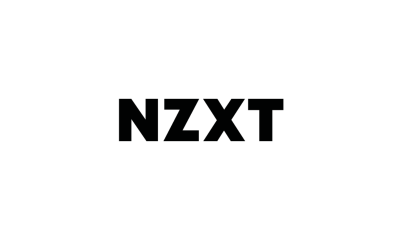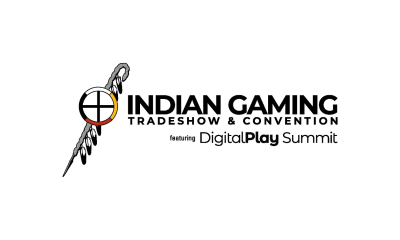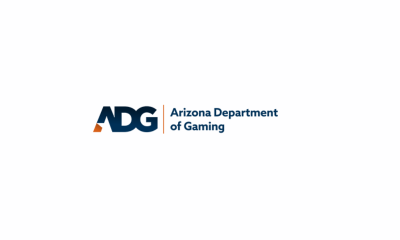Canada
Fraudsters in Canada Shift Focus to Travel and Leisure

As the prevalence of digital fraud attempts on businesses and consumers continues to rise, TransUnion’s newest quarterly analysis found that fraudsters are re-focusing their efforts from financial services to the travel and leisure and gaming industries.
Across industries, the rate of suspected digital fraud attempts1 rose 16.5% globally when comparing Q2 2021 to Q2 2020. In Canada, the percentage of digital fraud attempts increased at a much higher rate of 44.9% during the same time period. Gaming and travel and leisure were the two most impacted industries globally for the suspected digital fraud attempt rate, rising 393.0% and 155.9% in the last year, respectively. In Canada, this rate rose 209.8% for gaming and 216.1% for travel and leisure.
TransUnion monitors digital fraud attempts reported by businesses in varied industries such as gambling, gaming, financial services, healthcare, insurance, retail and travel and leisure, among others. The conclusions are based on intelligence from billions of transactions and more than 40,000 websites and apps contained in its flagship identity proofing, risk-based authentication and fraud analytics solution suite – TransUnion TruValidate™.
“It is quite common for fraudsters to shift their focus every few months from one industry to another,” said Anne-Marie Kelly, head of Market Development, Identity Management and Fraud Solutions at TransUnion. “Fraudsters tend to seek out industries that may be seeing an immense growth in transactions. This quarter, as countries began to open up more from their COVID-19 lockdowns and travel and other leisure activities became more mainstream, fraudsters clearly made this industry a top target. The immense growth in gaming fraud also can likely be attributed to the shifts in focus of fraudsters as this growing market becomes a larger target.”
An example of the shift in focus of fraudsters can be seen in financial services. Global financial services suspected online fraud attempt rates had risen 149% when comparing the first four months of 2021 and the last four months of 2020. But when comparing Q2 2021 and Q2 2020, the rate of suspected online financial services fraud attempts have still risen, but at a much lower rate of 18.8% globally and 29.7% in Canada.
Global Industry Year-over-Year Suspected Digital Fraud Attempt Rate Increases and Declines in Q2 2021
| Industry | Suspected Fraud Percentage Change |
Top Type of Fraud | |
| Largest Percentage Increases | |||
| Gaming | 393.0% | Gold Farming | |
| Travel & Leisure | 155.9% | Credit Card Fraud | |
| Gambling | 36.2% | Policy/License Agreement Violations | |
| Largest Percentage Declines | |||
| Logistics | -49.2% | Shipping Fraud | |
| Telecommunications | -30.8% | True Identity Theft | |
| Insurance | -16.7% | Suspected Ghost Broker | |
Industry Year-over-Year Suspected Digital Fraud Attempt Rate Increases and Declines in Q2 2021 Coming from Canada
| Industry | Suspected Fraud Percentage Change |
Top Type of Fraud | |
| Largest Percentage Increases | |||
| Travel & Leisure | 216.1% | Credit Card Fraud | |
| Gaming | 209.8% | Gold Farming | |
| Retail | 139.4% | Inappropriate Content | |
| Logistics | 90.3% | Shipping Fraud | |
| Largest Percentage Declines | |||
| Telecommunications | -97.2% | True Identity Theft | |
| Gambling | -39.8% | Policy/License Agreement Violations | |
| Communities (Online dating, forums, etc.) |
-22.2% | Profile Misrepresentation | |
More than one-third of consumers continue to be targeted by COVID-19 related digital fraud
As online fraud attempts against businesses continue to escalate, one in three consumers stated that they have been targeted by a digital fraud scheme related to COVID-19 during the second quarter of 2021. TransUnion’s Consumer Pulse study in June 2021 found that approximately 36% of global survey respondents said they were targeted by fraudsters in COVID-19 related digital schemes. The same percentage of respondents (36%) in Canada also said they were targeted.
Phishing is the top type of COVID-19 related digital fraud impacting global consumers in Q2 2021. Phishing is a cybercrime that uses methods like email, text messages and websites to steal personal information, which criminals use to commit identity and financial crimes. Among global consumers who say they were targeted with COVID-19-related digital fraud, 33% state they have been targeted by or fallen victim to such fraud. Stolen credit card or fraudulent charges was the second most cited type of COVID-19 related online fraud among those targeted, affecting global consumers at 24%. In Canada, phishing was number one at 41% followed by stolen credit card or fraudulent charges at 25%.
“More than one in three Canadians surveyed have been targeted by or fallen victim to digital fraud during the pandemic, placing even more pressure on businesses to ensure their customers are confident in transacting with them,” said Kelly. “As fraudsters continue to target consumers, it’s incumbent on businesses to do all that they can to ensure their customers have an appropriate level of security to trust their transaction is safe all while having a friction-right experience to avoid shopping cart abandonment.”
Canada
Aristocrat Interactive Expands to Play Alberta with New Games

iGaming in Alberta continues to soar to new heights on PlayAlberta.ca. Alberta’s only regulated gambling website has now added select titles from Aristocrat Interactive, Aristocrat Leisure Limited’s regulated online Real Money Gaming (RMG) and Gaming Systems division.
The integration of Aristocrat Interactive’s games will provide a familiarity for players, as Aristocrat Leisure Limited’s land-based gaming division, Aristocrat Gaming, is the number one supplier of slot terminals within Alberta land-based casinos.
“Adding another world-renowned games provider to PlayAlberta.ca only helps bolster entertainment offerings for our players. Aristocrat Gaming has an established presence globally and bringing their features to Alberta will continue to enhance the province’s only regulated gambling website while encouraging Albertans to use a safe-and-secure iGaming destination ” Steve Lautischer, Executive Vice President, Business Development.
“Expanding our reach across North America remains a key priority and this launch with Play Alberta represents another milestone in our commitment to delivering the very best content to players in the region. Play Alberta has resonated with players across the province and we are thrilled to establish what we are sure will be a very positive relationship,” Shivan Patel, VP of North America at Aristocrat Interactive.
Titles being added to Play Alberta include: Buffalo, Wicked Winnings II, 7 Hot 7 and Gold Stacks 88 Lunar Festival with more set to be available in the coming weeks.
Being Alberta’s only regulated gambling website and a leader in online gambling means offering players responsible gambling tools that engage all players. AGLC’s GameSense and Self-Exclusion programs are best-in-class resources that offer bet, deposit and loss limits, to make sure players are in control of their gambling.
Canada
OLG and Team Canada Launch Official Partnership Ahead of Paris 2024

Ontario Lottery and Gaming Corporation (OLG) has entered into a partnership with the Canadian Olympic Committee and Canadian Paralympic Committee and has become the Official Ontario Lottery Partner of Team Canada for the upcoming Paris 2024 Olympic and Paralympic Games.
“Ontario is ready to cheer on Team Canada athletes as they compete in Paris this summer. This new partnership is showcasing one of the many ways OLG’s support makes a difference to people and communities across the province,” said Stan Cho, Minister of Tourism, Culture and Gaming.
“We are thrilled to welcome OLG to Team Canada. Ontario has such a rich sporting history and OLG has long been a supporter of sport and amateur athletes. We know this support has made a profound impact on athletes across the province, whether they’re engaged in sport at the grassroots level or pursuing their Olympic dreams,” said Jacqueline Ryan, Chief Brand and Commercial Officer of the Canadian Olympic Committee and CEO of the Canadian Olympic Foundation.
“We are so pleased to be entering a new partnership with OLG and welcoming them into the Canadian Paralympic community. We know support for sport and athletes has been important to OLG for many years, and we are excited to work with them to continue to champion Ontario’s Para athletes and inclusive sport across Ontario,” said Karen O’Neill, CEO, Canadian Paralympic Committee.
As momentum builds toward the Paris 2024 Olympic and Paralympic Games, OLG is also shining a spotlight on its players, who have helped support amateur athletes in Ontario by playing with OLG. The new “Sponsored by You” campaign reinforces that when you play with OLG, you support Ontario athletes.
Since 2006, OLG and the Ontario government have supported high-performance amateur athletes through the Quest for Gold athlete assistance program. The program has provided direct financial support to thousands of amateur athletes, enhancing their ability to train by offsetting the costs of training and living expenses.
“Many people don’t realize 100 per cent of OLG’s profits are reinvested into Ontario, and that we have a longstanding history of supporting amateur athletes. OLG’s ability to give back to communities is only possible thanks to our players, so we wanted to use this opportunity to recognize and celebrate them,” said Maxine Chapman, VP Brand & Marketing Officer at OLG.
OLG’s campaign features Team Canada athletes Andre De Grasse, Penny Oleksiak, Maggie Mac Neil, Jillian Weir and other Ontario athletes and Para athletes who have received funding from Ontario’s Quest for Gold program.
“Training for the Olympics takes a lot of preparation – physically, mentally and financially – and it’s not something you can succeed at alone. Having programs like Quest for Gold to help and knowing your community is supporting you makes all the difference, especially when you’re competing on the world stage,” said six-time Olympic medallist Andre De Grasse.
The success of the Quest for Gold program shows in the numbers – in the last four Olympic cycles, over 90% of Ontario medal winners had received Quest for Gold funding during their career.
“The Quest for Gold program showcases our government’s continued efforts to enable Ontario athletes to achieve their full potential at the highest levels of competition. We are proud to join with the OLG, our partners across the sport sector and all Ontarians in wishing our Olympic and Paralympic athletes the best of luck in Paris,” said Neil Lumsden, Minister of Sport.
Canada
Greo and CCSA Release New Report Named “Gambling Availability and Advertising in Canada: A Call to Action”

Recent gambling policy changes in Canada have led to increased opportunities to legally bet on sports and gamble online, 24 hours a day, seven days a week. The report “Gambling Availability and Advertising in Canada: A Call to Action” looks at the impacts of legal gambling in Canada since the approval of the Safe and Regulated Sports Betting Act in 2021. The report recommends developing a pan-Canadian strategy to address gambling-related harms. This is a new report by Greo Evidence Insights (Greo) and the Canadian Centre on Substance Use and Addiction (CCSA).
This call to action is in response to the significant increase in gambling advertising on billboards, social media, at commercial breaks during sports broadcasts and during sporting events. Increased gambling availability and advertising are expected to contribute to increased gambling in Canada, thereby posing a significant risk of harms among the general population, particularly for youth, young adults and other vulnerable populations.
The report also describes how the increased availability of gambling and in gambling advertising are of great concern because:
- The types of gambling being made available and promoted (single-event sports betting and live or in-play betting) are associated with a greater risk of harm. For example, single-event sports betting increases gambling intensity and gives an illusion of control over the outcome as people believe their knowledge of the game gives them a competitive edge.
- The volume of gambling advertisements repeatedly pairing sports with betting normalizes gambling, leading people to think of betting as an integral part of being a sports fan.
- Increased availability of gambling and in gambling advertising are happening at a time when many people in Canada are more vulnerable to problematic gambling and gambling-related harms because of the lingering health impacts of COVID-19 and a rise in the cost of living.
“Over the last few years, we have witnessed some of the most significant changes in gambling policy since the 1970s. We have seen a massive increase in gambling advertising and opportunities to gamble. We can no longer watch sports with our kids or go online without being subjected to an overwhelming amount of gambling advertising. Canada is at a critical moment in how it manages gambling. A national strategy or framework — similar to what we have for alcohol, tobacco and cannabis — is critical to manage the expected increase in gambling harm, especially among youth and other vulnerable people,” explained Dr. Matthew Young, Chief Research Officer at Greo, Senior Research Associate at the CCSA and Adjunct Professor at Carleton University.
The report recommends developing a national strategy that will:
- Develop national standards governing the promotion and availability of gambling;
- Manage conflicts of interest among gambling stakeholders;
- Address inadequate funding for gambling harm prevention and reduction initiatives and research;
- Monitor systematic changes in gambling-related harm, including any assessments of the social and economic costs of gambling; and
- Increase awareness of gambling-related harms among health and social service professionals and the public.
“Increased gambling among people living in Canada will undoubtebly result in increased harms and therefore increased societal costs. These include healthcare costs, criminal-justice costs, child welfare costs, increased unemployment and lost productivity costs because of gambling-related suicide. We need to think about our approach and ensure that it considers not only short-term government revenue and economic activity but also the longer-term societal costs. That’s why we need a national strategy,” Dr. Pam Kent, Director of Research and Emerging Trends at CCSA, said.
-
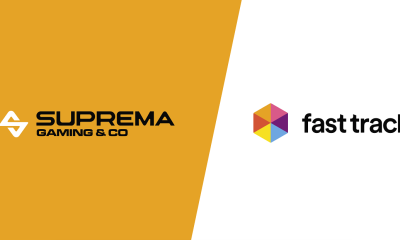
 Latest News3 days ago
Latest News3 days agoFast Track Secures Landmark Deal with Suprema Group – Setting a New Standard in the Brazilian iGaming Market
-
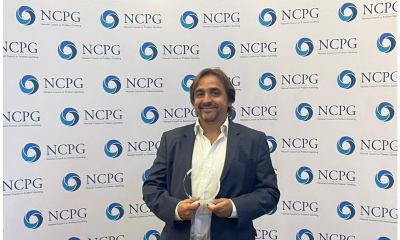
 Gambling in the USA5 days ago
Gambling in the USA5 days agoBetBlocker Recognised for Outstanding Contribution to the Prevention of Gambling Harm at NCPG Awards 2024
-

 Latest News3 days ago
Latest News3 days agoLight & Wonder Expands Presence in Oregon with Additional Placements of KASCADA Dual Screen Multi-Games
-

 Industry News4 days ago
Industry News4 days agoPenn Entertainment to Lay Off About 100 Employees
-

 Latest News3 days ago
Latest News3 days agoRakin’ Bacon Sahara® Launches Exclusively in New Jersey at Hard Rock Hotel & Casino Atlantic City and online at Hard Rock Bet
-

 partnerships3 days ago
partnerships3 days agoGGPoker & Triton Poker Offer High-Roller And Super-High-Roller Events At 2024 WSOP Paradise
-

 Latest News3 days ago
Latest News3 days agobet365 Announces Official Launch in Pennsylvania
-

 Daily Fantasy Sports5 days ago
Daily Fantasy Sports5 days agoDraftKings Becomes Official Partner of the WNBA





